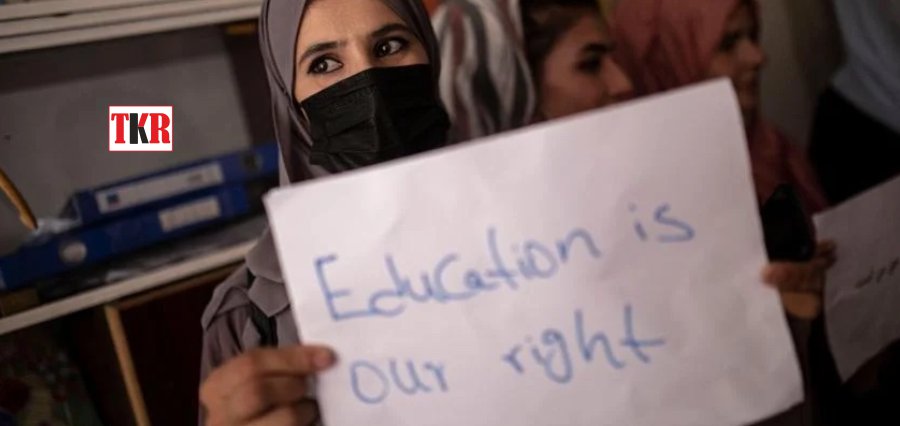The Taliban’s ban on Afghan women attending universities has prompted indignation throughout the global education community, with several organizations promising to do more to assist.
In December, Futurelearn made the announcement that for the length of the restriction, women from Afghanistan will have free access to more than 1,200 courses on its online learning platform.
The German Federal Ministry for Economic Cooperation and Development has offered €7 million to aid Afghan women in completing their education in one of three neighboring nations—Bangladesh, Kyrgyzstan, or Pakistan—in order to support them.
By the end of 2027, the scholarship program, created by the German Academic Exchange Service (DAAD), hopes to help 5,000 individuals.
According to DAAD President Joybrato Mukherjee, the current state of affairs in Afghanistan is “catastrophic.”
Particularly hard hurt have been young women. They barely ever have the opportunity to engage in social activities anymore. They don’t have any prospects for academic training because they aren’t allowed into universities, he claimed.
According to the Taliban, the prohibition is just temporary and will endure “until a favorable environment is formed for their education.”
The new scholarship program, Mukherjee continued, “is thus an important building block in enabling young women, together with our international partner organizations, to prepare for university and to support Afghan women refugees with bachelor’s and master’s scholarships at universities in the region.”
Malloch-Brown remarked, “The Taliban believe that the world has forgotten them; we mustn’t.”
According to a FutureLearn spokeswoman, in the first week after its debut, the number of visitors from Afghanistan increased by 700%, leading to more than 2,100 new registrations and 1,800 enrolments. Additionally, it received over 2000 inquiries directly from students in Afghanistan.
The DAAD declaration comes after the prominent academic rights group Scholars at Risk demanded an immediate increase in the number of overseas scholarships available to Afghans.
The foreign ministers of Australia, Canada, France, Germany, Italy, Japan, the Netherlands, Norway, Spain, Switzerland, the UK, and the United States issued a joint statement in December denouncing the prohibition. They were joined by the High Representative of the European Union.
The Taliban were encouraged to “abandon the new repressive measures with respect to the university education for women and girls and to, without delay, revoke the existing decision to prohibit girls from attending secondary school.”
The statement went on to say that all Afghans, including women and girls, must be able to fully, equally, and effectively engage in and contribute to the future and development of their nation in order for it to be stable, economically successful, and peaceful.
IIE, a US-based organization, said it is “pursuing every option to accelerate aid to Afghan women and girls prevented from accessing higher education” and that it is “continue to support Afghan women and girls, through a variety of programs.”
The Odyssey Scholarship from the IIE pays for tuition, housing, and living expenses for students pursuing a four-year bachelor’s degree or a two-year master’s degree. It is available to refugees and displaced people from all over the world.
Afghans may apply for the scholarships, but IIE’s Qatar Afghan Scholarship Project, which has an equal number of male and female winners, is completely dedicated to assisting Afghans in continuing their studies in the US.
The project’s initial cohort of 250 students arrived during the 2022–2023 academic year. It is a partnership between Education Above All, The Afghan Future Fund, Schmidt Futures, the Yalda Hakim Foundation, the Qatar Fund For Development, and Rockefeller Philanthropy Advisors.
In addition, the IIE Scholar Rescue Fund offers scholarships at international partner higher education institutions and is open to threatened and displaced Afghan intellectuals.
According to The Guardian, 60 Afghan men have resigned from their university posts in protest of the prohibition, demonstrating their sympathy with their female colleagues and students who work in the education sector in Afghanistan.









